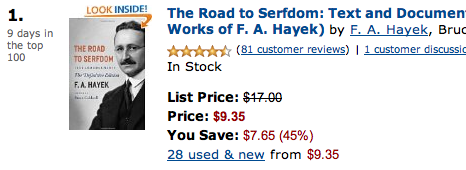I built our first real estate web site in June of 2001. I had just gotten my license that May, parking it with an apartment locating service called The Apartment Store. The folks Jeff Brown calls “house agents” like to laugh at niche players in the real estate world, but I passed on three residential brokerages to do rentals. Why? Because I knew I would starve to death — as 85+% of all new licensees do — waiting for my first home buyer or seller. Instead, I took a job where I stood a chance of getting belly-to-belly with five or six motivated people a day.
But: I built the web site because I wasn’t in love with the people I was meeting. Jack English, the broker, had built his business around serving extremely marginal clients — apartment seekers with bad credit, past judgements, felony convictions, etc. Everyone deserves a second chance in life, but, for the most part, I turned out to be a poor fit for the targeted clientele. I moved some interesting people I was delighted to help — for example, two recovered heroin addicts and the sweetest paroled murderer one could ever hope to meet — but I also met a lot of people to whom no one should ever have extended credit.
Even so, the experience was great. I got to talk to a lot of people, showing a lot of apartments and rental homes, and I got to learn, very quickly, what makes the frog jump. That’s why I built the web site: I realized that Jack’s business model was missing a better segment of the rental market. Less-than-ideally-qualified tenants needed help because they didn’t know who would take them and who would turn them down. But there was a much larger, much juicier, much better-qualified pool of prospects out there: People with plenty of money but no time.
That first site, TheApartmentStore.org, was a killer lead generator. No one was doing anything using forms in those days, and GoTo.com was still selling pay-per-click for as little as a penny a click. I was hauling in four and Read more


